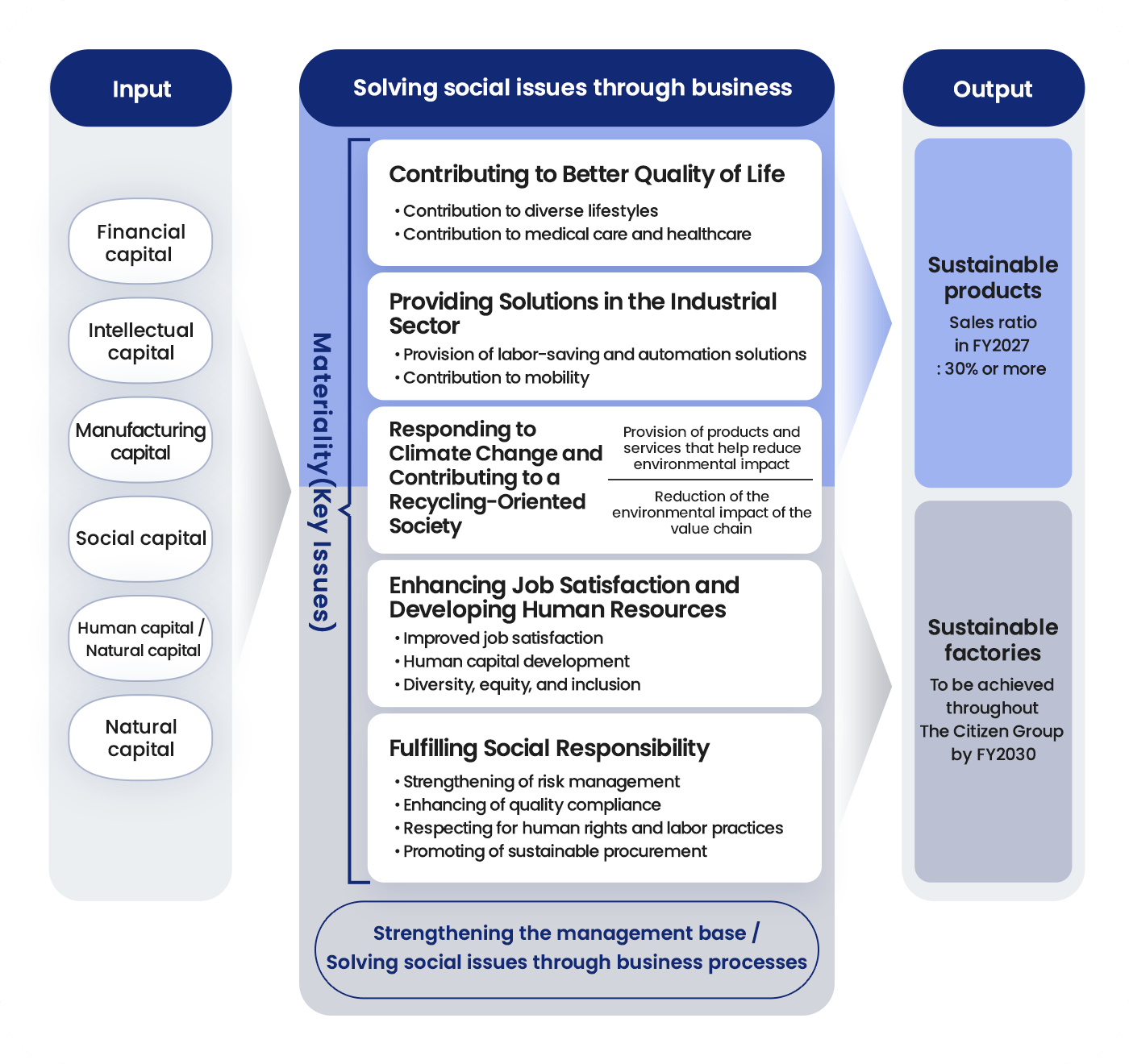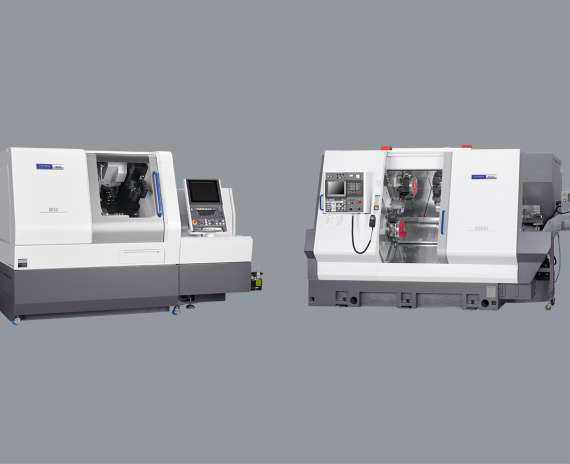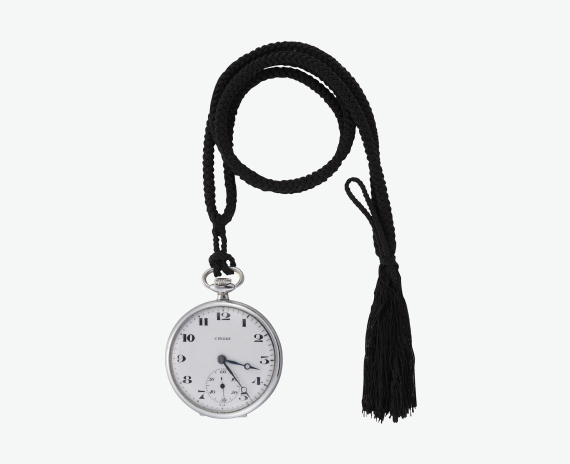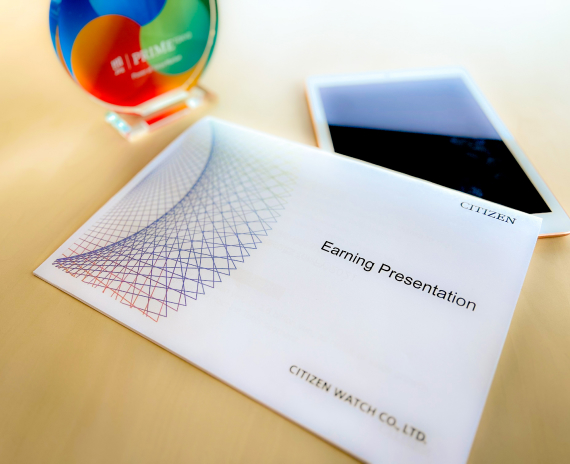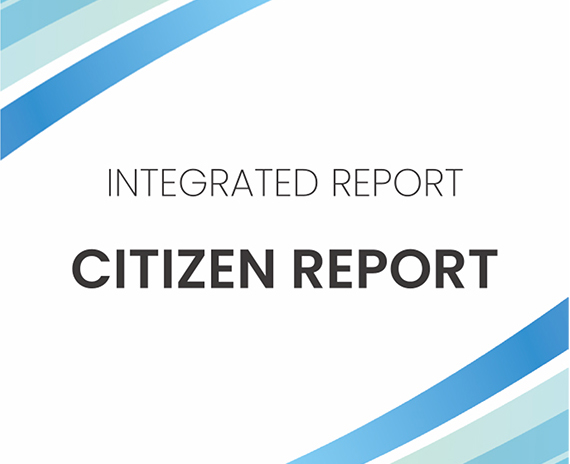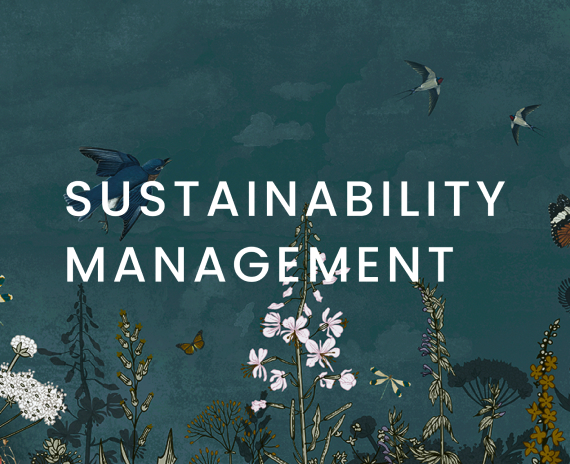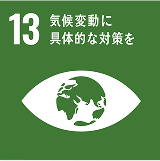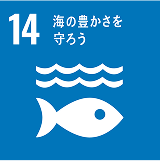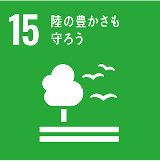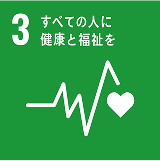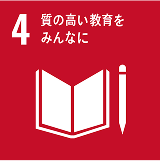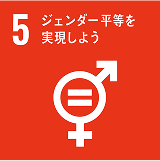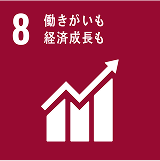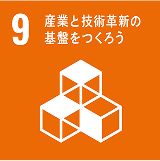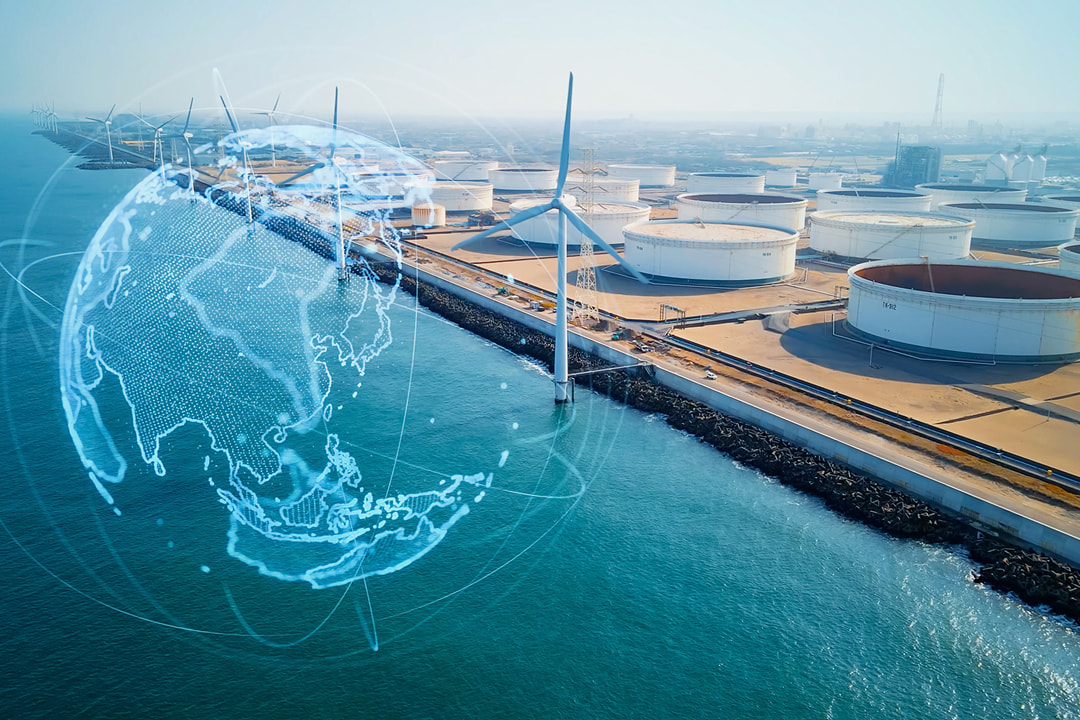- TOP
- Sustainability
- Sustainable Products & Factories
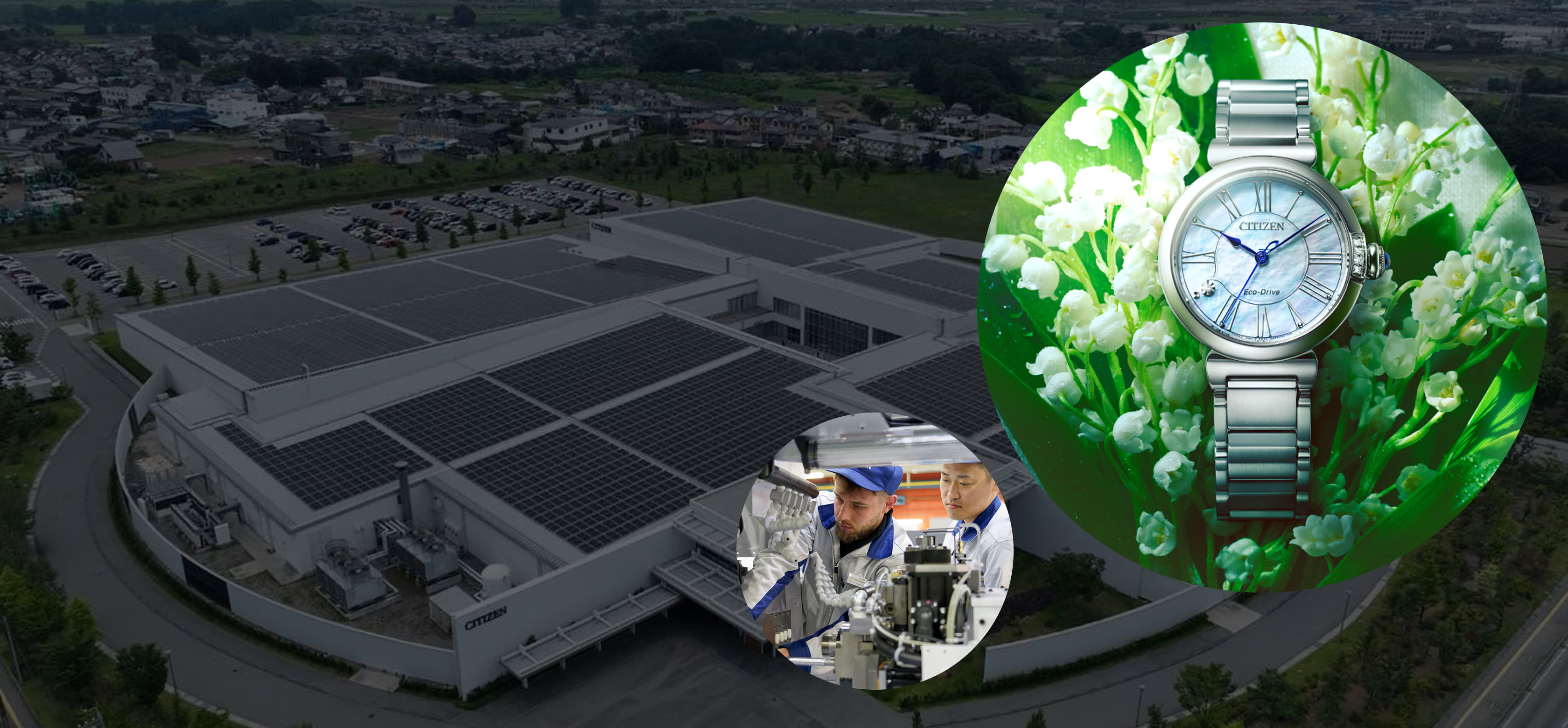
Sustainable Products
& Factories
Sustainable manufacturing that crafts a new tomorrow
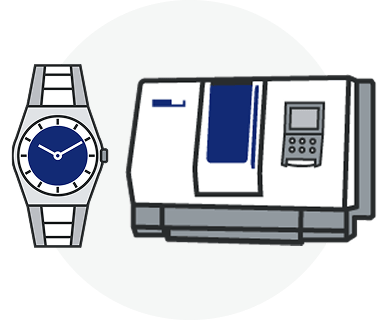
Increase the ratio of "sustainable products" to the total group sales to 30% or more in FY2027.
- Responding to climate change and contributing to a recycling-oriented society / Contributing to better quality of life / Providing solutions in the industrial sector
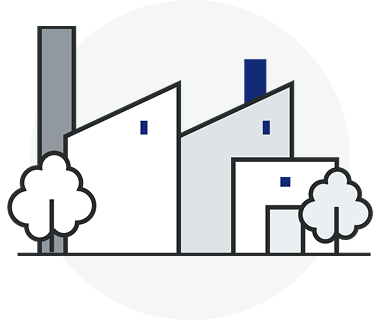
Realize the "sustainable factory" concept by 2030.
- BCP (Business Continuity Plan): A business continuity plan is formulated during normal times of operation to prepare for the possible effects of large-scale disasters on business activities. Such a plan stipulates the systems, functions, and procedures necessary to continue supplying products and services and to enable early recovery.
Sustainable Products Initiatives

Increase the ratio of "sustainable products" to the total group sales to 30% or more in FY2027.
24%
- The ratio of "sustainable products" to total group sales
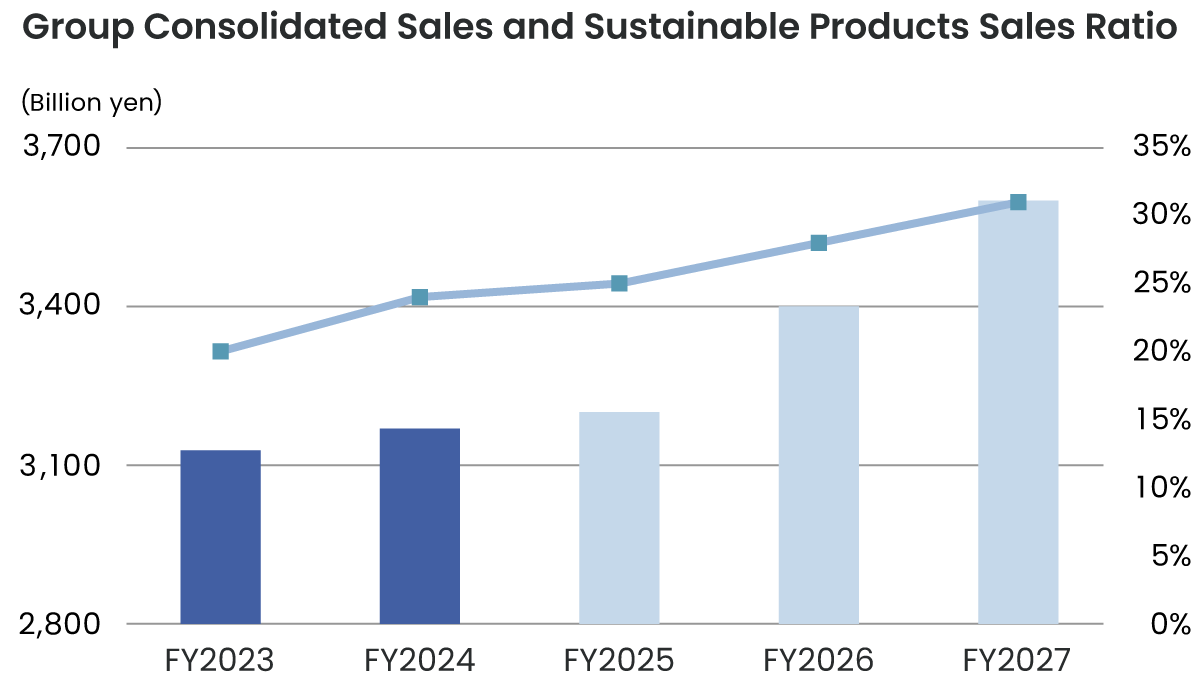
Sustainable Products Certification Criteria
The Sustainable Products Certification System is an in-house system common to The CITIZEN Group, under the supervision of external experts in the formulation of certification criteria and the appropriateness of the items to be evaluated.
Based on the corporate philosophy, we certify products and services that are consistent with our business strategy, including our past sustainable initiatives, and our materiality as sustainable products.
Out of the five material issues identified by The CITIZEN Group, the following three need to be addressed through its products and services: "Responding to Climate Change and Contributing to a Recycling-Oriented Society," "Contributing to Better Quality of Life," and "Providing Solutions in the Industrial Sector."
The Group has set its criteria for certification as an essential requirement for all Group companies to meet one or more of these material issues, taking into consideration the uniqueness and superiority of business strategies, products, and services in each business.
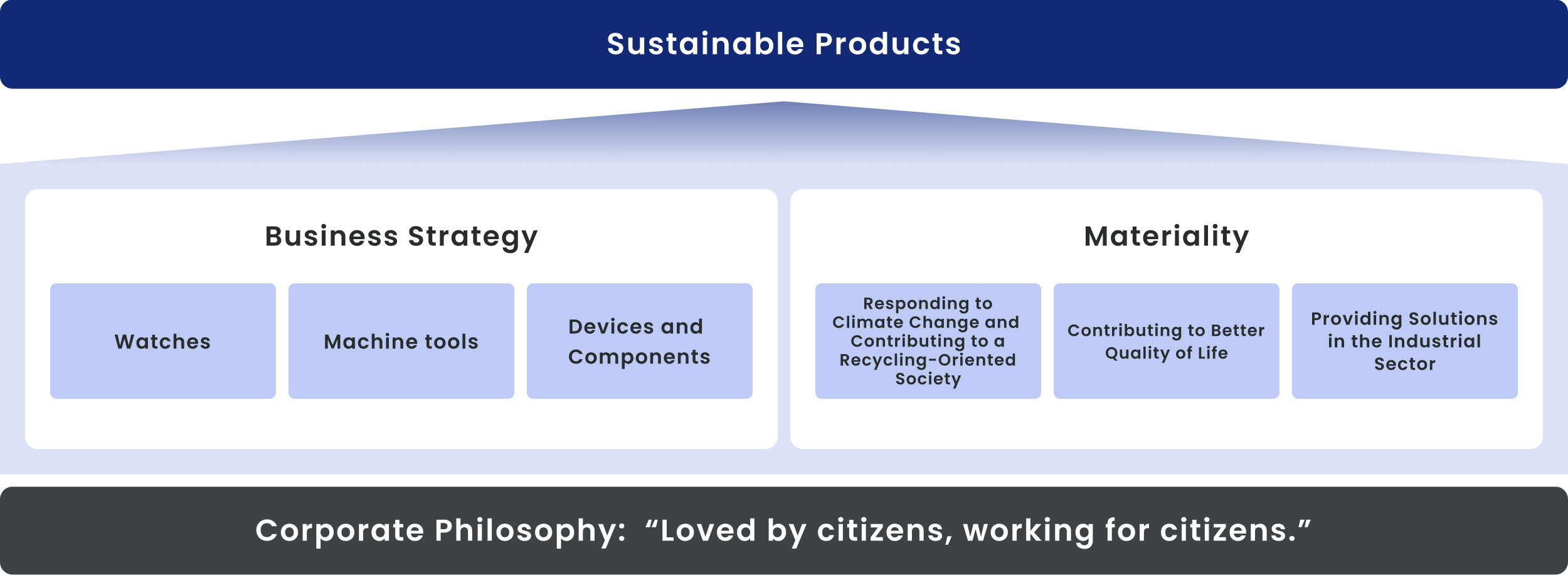
The certification criteria consist of contributing factors linked to materiality.
Specific certification criteria have been set for each business and are judged objectively.
| Materiality | Classification | Contributing factors (e.g.) | Related SDGs |
|---|---|---|---|
|
Responding to Climate Change and Contributing to a Recycling-Oriented Society |
Response to climate change |
|
|
| Contributing to a recycling-oriented society | |||
| Contributing to Better Quality of Life | Contribution to diverse lifestyles |
|
|
| Contribution to medical care and healthcare | |||
| Providing Solutions in the Industrial Sector | Provision of labor-saving and automation solutions |
|
|
| Contribution to mobility |
The Sustainable Products Certification System and the certification criteria for each business were approved by the Group Management Committee in 2023 after discussions at the Sustainability Committee, based on the opinions of external experts.
In the future, the certification criteria will be reviewed as necessary in response to changes in social conditions, and any changes to the criteria shall be discussed and approved by the Sustainability Committee.
Introduction of Sustainable Products

CITIZEN L
Creating sustainable beauty
that goes beyond appearance
Examples of Sustainable Products
-
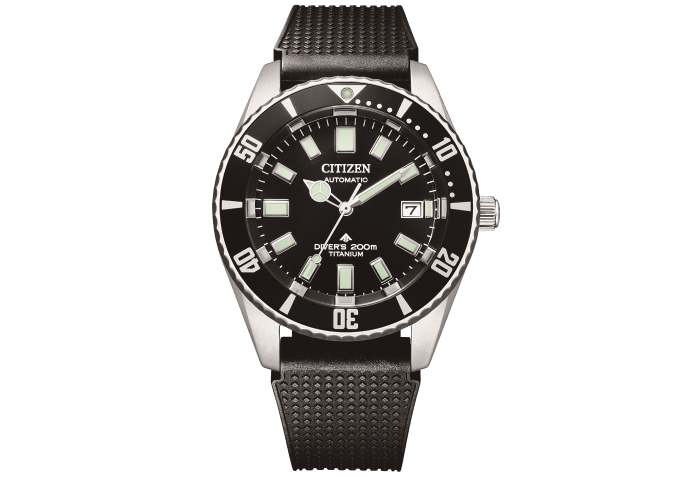
 Watches
Watches- Energy saving, Longer product life
- Design and service systems that enable product disassembly and repair
- Use of sustainable raw materials
-

 Movements
Movements- Energy saving, Longer product life
- Design and service systems that enable product disassembly and repair
-

 Machine Tools
Machine Tools- EcoBalance Machine
(Ecobalance-certified machine equipped with technologies for reduced CO2 emissions, reduced operation time, and improved productivity) - Addressing labor shortages through labor-saving and automation solutions
- EcoBalance Machine
Sustainable Factories Initiatives

Realize the "sustainable factory" concept by 2030.
Roadmap for Realizing the "Sustainable Factory" Concept
The CITIZEN Group as a whole aims to realize the "sustainable factory" concept by 2030.
Specifically, we have formulated a roadmap and a vision of what we aim to achieve in 2030 in the areas of "response to climate change," "contribution to a recycling-oriented society," "enhancement of quality compliance," "respect for human rights and labor practices," and "promotion of sustainable procurement." We are working on this roadmap and vision across the entire Group, updating them as necessary. Please refer to the links for each category for the progress over the past years.
| Materiality | Classification / Target in 2030 | Key indicators for 2030 |
|---|---|---|
| Responding to climate change and contributing to a recycling-oriented society |
Response to climate change
|
|
Contribution to a recycling-oriented society
|
||
| Fulfilling social responsibility |
Enhancement of quality compliance
|
|
Respect for human rights and labor practices
|
|
|
Promotion of sustainable procurement
|
|
Progress of Sustainable Factories
Sustainable Factories Promotion Activities
Since the cooperation of our suppliers and the entire value chain is essential to realizing the "sustainable factory" concept, we are promoting activities to seek the understanding and cooperation of our stakeholders. We use the UN Global Compact Self-Assessment Questionnaire (SAQ) as a tool for awareness-raising activities and risk management. This SAQ asks whether there are policies, systems, initiatives, and corrections in place for a total of nine areas related to CSR, including corporate governance, human rights, the environment, the working environment, and quality. The basic content can be commonly used across all industries, and The CITIZEN Group conducts self-assessment surveys of all of its sites, including overseas offices, and of its major direct material suppliers.
Our Vision
The CITIZEN Group has set "Crafting a new tomorrow" as its long-term vision for 2030 and is promoting sustainable management.
"Sustainable factories" aim to create sustainable production facilities and offices that take into consideration not only environmental issues such as climate change but also social and economic issues such as human rights issues, labor practices, and productivity improvement. Meanwhile, "sustainable products" aim to increase the sales ratio of products and services that contribute to solving major social issues and to business growth. These are measures that will embody sustainable management and are core initiatives for realizing our long-term vision.
By promoting "sustainable products and factories," The CITIZEN Group aims to be a corporate group that delivers "peace of mind," "trust," and "impressive value," enriching not only the lives of people but also their hearts and passing that wealth on to the next generation.
